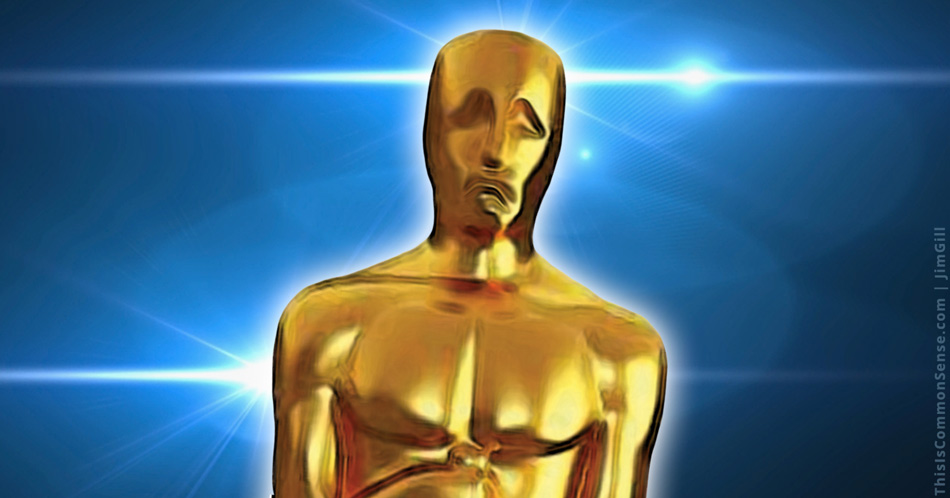At my advancing age, I couldn’t stay up late enough to watch Hollywood’s winners grab their Oscars and punctuate their rambling, teary-eyed acceptance speeches by hurling brickbats at President Trump.
The Donald will have to defend himself for perverse statements such as heard on the Access Hollywood tape: “[W]hen you’re a star … You can do anything.” Live by the stars, die by the stars.
Still, consider: how much more effective would those Hollywood (snoozed-through) scoldings be had these cultural “icons” voiced similar disfavor against President Bill Clinton’s similar actions.
Regardless of the precise Clintonian “is”-ness of “is,” clearly “hypocrisy” is up in lights in Tinseltown.
Another seeming Hollywood double-standard strolls down the red carpet unimpeded: the gender pay gap. “Compared to men, in most professions, women make 80 cents to the dollar,” actress Natalie Portman said last month. “In Hollywood, we are making 30 cents to the dollar.”
Much ballyhooed and largely erroneous, the national gender wage gap compares the median male income against the median female income out of hundreds of millions of workers, without regard to jobs done, hours worked, or levels of experience. Conversely, leading roles in a movie can more fairly be compared.
The North Korean hack of Sony Pictures revealed numerous cases where female stars were paid far less than their male counterparts. For instance, in the film No Strings Attached, Ashton Kutcher, Portman’s male co-star, received compensation three times greater.
Yesterday, at Townhall, I asked a simple question: Wouldn’t it better serve the interests of fairness and equality were actors to muster whatever truth to be had directly at the Hollywood power structure … sitting before them in the ballroom?
This is Common Sense. I’m Paul Jacob.

